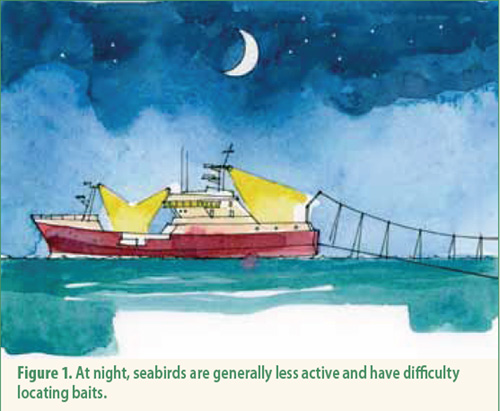Henrik Österblom & Orjan Bodin (Stockholm Resilience Centre, Stockholm University, Sweden), writing in the journal Conservation Biology, have looked at Illegal, Unreported and Unregulated (IUU) longline fishing in the Southern Ocean via social-network analysis.
The paper's abstract follows:
"Illegal, unreported, and unregulated (IUU) fishing is prevalent globally and has detrimental effects on commercial fish stocks and nontarget species. Effective monitoring and enforcement aimed at reducing the level of IUU fishing in extensive, remote ocean fisheries requires international collaboration. Changes in trade and vessel activities further complicate enforcement. We used a web-based survey of Illegal, unreported, and unregulated (IUU) fishing engaged in reducing IUU fishing in the Southern Ocean to collect information on interorganizational collaborations. We used social-network analyses to examine the nature of collaborations among the identified 117 organizations engaged in reducing IUU fishing. International collaboration improved the ability to control and manage harvest of commercially important toothfish (Dissostichus spp.) stocks and reduced bycatch of albatrosses (Diomedeidae) and petrels (Procellariidae) in longlines of IUU fishing vessels. The diverse group of surveyed organizations cooperated frequently, thereby making a wide range of resources available for improved detection of suspected IUU vessels and trade flows, cooperation aimed at prosecuting suspected offenders or developing new policy measures. Our results suggest the importance of a central agency for coordination and for maintaining commonly agreed-upon protocols for communication that facilities collaboration. Despite their differences, the surveyed organizations have developed common perceptions about key problems associated with IUU fishing. This has likely contributed to a sustained willingness to invest in collaborations. Our results show that successful international environmental governance can be accomplished through interorganizational collaborations. Such cooperation requires trust, continuous funding, and incentives for actors to participate."

Reference:
Österblom, H. & Bodin, O. 2012. Global cooperation among diverse organizations to reduce illegal fishing in the Southern Ocean. Conservation Biology. DOI: 10.1111/j.1523-1739.2012.01850.x.
With thanks to Justine Shaw for information.
John Cooper, ACAP Information Officer, 31 May 2012

 English
English  Français
Français  Español
Español